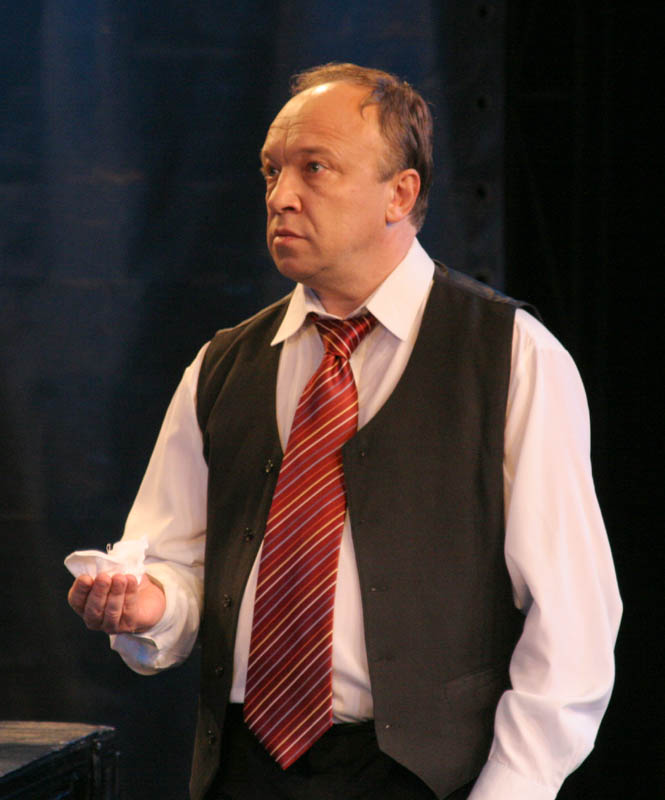|
Das Orchester
''Das Orchester'' is a German-language magazine for musicians and management which has been published eleven times a year since 1953 by Schott Music and is distributed in over 45 countries worldwide. The editor-in-chief is based in Berlin while the publishing house's editorial office is located in Mainz. Content The magazine deals with all topics concerning the orchestra: with music education and professional life, with music and music medicine, with music education and training programmes, audience acquisition and cultural financing, orchestra marketing and orchestra management. It takes a look at the international orchestra landscape, reports on the work of and publishes studies on audience research. Reports on concert series, music theatre premieres, music festivals, competitions and symposia reflect current musical life. In addition, there is information about new things for musicians, also in instrument making, short news items and detailed reviews of new books, sheet m ... [...More Info...] [...Related Items...] OR: [Wikipedia] [Google] [Baidu] |
Schott Music
Schott Music () is one of the oldest German music publishers. It is also one of the largest music publishing houses in Europe, and is the second oldest music publisher after Breitkopf & Härtel. The company headquarters of Schott Music were founded by Bernhard Schott in Mainz in 1770. Schott Music is one of the world's leading music publishers. It represents many important composers of the 20th and 21st centuries, and its publishing catalogue contains some 31,000 titles on sale and over 10,000 titles on hire. The repertoire ranges from complete editions, stage and concert works to general educational literature, fine sheet music editions and multimedia products. In addition to the publishing houses of Panton, Ars-Viva, Ernst Eulenburg, Fürstner, Cranz, Atlantis Musikbuch and Hohner-Verlag, the Schott group also includes two recording labels, Wergo (for new music) and Intuition (for Jazz), as well as eight specialist magazines. The Schott Music group also includes the printing ... [...More Info...] [...Related Items...] OR: [Wikipedia] [Google] [Baidu] |
Orchestra
An orchestra (; ) is a large instrumental ensemble typical of classical music, which combines instruments from different families. There are typically four main sections of instruments: * bowed string instruments, such as the violin, viola, cello, and double bass * woodwinds, such as the flute, oboe, clarinet, saxophone, and bassoon * Brass instruments, such as the horn, trumpet, trombone, cornet, and tuba * percussion instruments, such as the timpani, snare drum, bass drum, cymbals, triangle, tambourine, and mallet percussion instruments Other instruments such as the piano, harpsichord, and celesta may sometimes appear in a fifth keyboard section or may stand alone as soloist instruments, as may the concert harp and, for performances of some modern compositions, electronic instruments and guitars. A full-size Western orchestra may sometimes be called a or philharmonic orchestra (from Greek ''phil-'', "loving", and "harmony"). The actual number of musicians employ ... [...More Info...] [...Related Items...] OR: [Wikipedia] [Google] [Baidu] |
Music Education
Music education is a field of practice in which educators are trained for careers as elementary or secondary music teachers, school or music conservatory ensemble directors. Music education is also a research area in which scholars do original research on ways of teaching and learning music. Music education scholars publish their findings in peer-reviewed journals, and teach undergraduate and graduate education students at university education or music schools, who are training to become music teachers. Music education touches on all learning domains, including the psychomotor domain (the development of skills), the cognitive domain (the acquisition of knowledge), and, in particular and the affective domain (the learner's willingness to receive, internalize, and share what is learned), including music appreciation and sensitivity. Many music education curriculums incorporate the usage of mathematical skills as well fluid usage and understanding of a secondary language or cult ... [...More Info...] [...Related Items...] OR: [Wikipedia] [Google] [Baidu] |
Auditions
An audition is a sample performance by an actor, singer, musician, dancer or other performer. It typically involves the performer displaying their talent through a previously memorized and rehearsed solo piece or by performing a work or piece given to the performer at the audition or shortly before. In some cases, such as with a model or acrobat, the individual may be asked to demonstrate a range of professional skills. Actors may be asked to present a monologue. Singers will perform a song in a popular music context or an aria in a Classical context. A dancer will present a routine in a specific style, such as ballet, tap dance or hip-hop, or show his or her ability to quickly learn a choreographed dance piece. The audition is a systematic process in which industry professionals select performers, which is in some ways analogous to a job interview in the regular job market. In an audition, the employer is testing the ability of the applicant to meet the needs of the job and asses ... [...More Info...] [...Related Items...] OR: [Wikipedia] [Google] [Baidu] |
Music Magazines Published In Germany
Music is generally defined as the art of arranging sound to create some combination of form, harmony, melody, rhythm or otherwise expressive content. Exact definitions of music vary considerably around the world, though it is an aspect of all human societies, a cultural universal. While scholars agree that music is defined by a few specific elements, there is no consensus on their precise definitions. The creation of music is commonly divided into musical composition, musical improvisation, and musical performance, though the topic itself extends into academic disciplines, criticism, philosophy, and psychology. Music may be performed or improvised using a vast range of instruments, including the human voice. In some musical contexts, a performance or composition may be to some extent improvised. For instance, in Hindustani classical music, the performer plays spontaneously while following a partially defined structure and using characteristic motifs. In modal ... [...More Info...] [...Related Items...] OR: [Wikipedia] [Google] [Baidu] |

.jpg)


